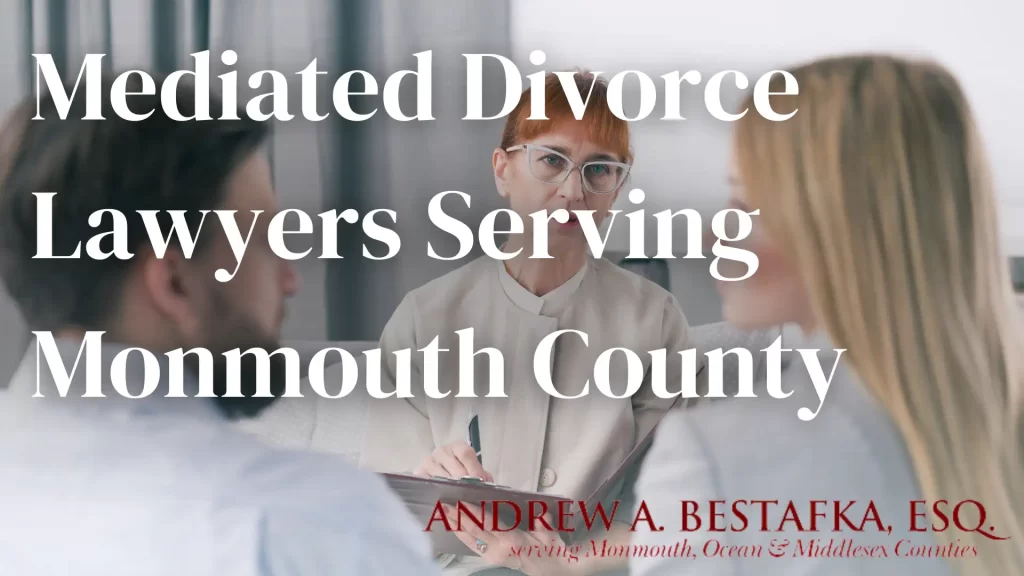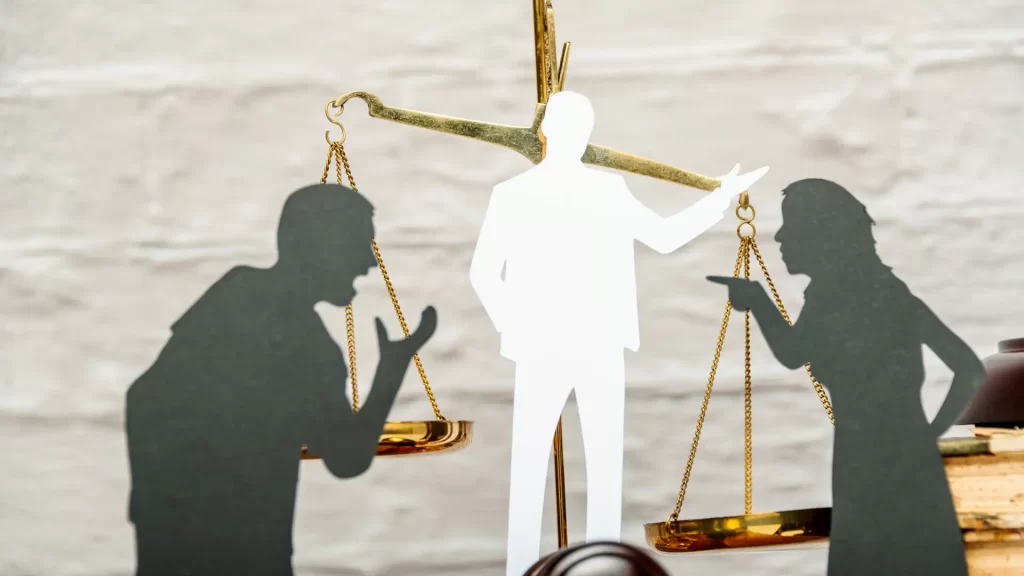
Not all divorces are contentious matters that involve bitter disputes and ugly squabbles in court over the division of property and custody of children. Many are in fact handled in a courteous manner through the guidance of a mediator. While lawyers are traditionally involved in divorce proceedings that take place in the courtroom, it is important to realize that having legal counsel in a mediated divorce can be invaluable during mediation.
A divorce agreement that is reached through mediation will ultimately be just as binding and permanent as one negotiated in court. To learn more about the benefits of legal counsel in the pursuit of this type of divorce, contact the Monmouth County mediated divorce attorneys at Law Office of Andrew A. Bestafka, Esq., at (732) 898-2378.
Consulting During Mediation
Even when you choose to pursue a divorce agreement through mediation, it is essential that you have skilled legal representation in order to advise you throughout the process and ensure that you fully understand the ramifications of the agreements you make. A lawyer can assist you in the following ways through consultation:
- Evaluating and weighing options for you
- Educating you on the legal aspects of the divorce
- Careful review of all documentation prior to signing
- Preparing final documents for court filings
By undergoing mediation with legal representation on your side, you may be able to swiftly get through this difficult process and return your focus to more positive and rewarding aspects of your life.
Frequently Asked Questions
Because mediation is not a well-known option during divorce, many people have questions about it. Below are some of the answers to common questions we hear about mediation at our firm.
Why is Mediation a Good Option?
Couples who choose mediation must be willing to work together through the divorce process. When a couple works with a mediator, the mediator helps them reach a consensus on the various terms of their divorce. Rather than using lawyers to represent each party’s interests, a mediator is meant to act impartially. The impartiality of a mediator can be an effective way to ease the tension. Mediation is a particularly good option for divorcing couples who are able to reach agreements more easily. Couples who are particularly combative and argumentative may find the process of a mediated divorce frustrating and unproductive. For some couples, making decisions together is easier, and when that is the case, mediation is a viable (even optimal) option.
How Do I Prepare for Mediation?
If you and your partner have chosen to pursue a mediated divorce, you will both benefit from preparing beforehand. Though an individual lawyer will not be present in mediation sessions, consulting with an experienced family lawyer can help you figure out how to best approach the terms of your divorce. Before beginning mediation, it is important to understand that reaching agreements can take time. It is not necessary or realistic to expect that you and your partner will be able to immediately resolve your issues. Mediated divorces can include both joint sessions and private sessions. Joint sessions include meetings where both parties in the divorce are included. Likewise, private sessions are meetings that mediator holds with only one spouse.
How Is a Mediator Chosen?
Depending on the particular case, the mediator is either chosen by the court or selected by the couple. In choosing a mediator, impartiality and experience are of the utmost importance. If you are going through a divorce and you and your spouse are able to choose the mediator, consider the prospective mediators’ experience. There may be particular factors of your divorce that need special attention. If the mediator you are considering for your divorce has successfully overseen similar divorces, it could be an indication that they are equipped with the skills needed to mediate your divorce.
What Should I Expect of a Mediator?
 Mediators are meant to be impartial third party participants in a divorce. If you have chosen to use a mediator for your divorce, you can expect that the mediator will present various options to both you and your spouse. These options are designed to help you make decisions together. It is not the mediator’s job to force you into deciding, only to guide you toward solutions. An effective mediator will take each spouse’s view into consideration and then present ideas to work toward an ultimate solution. Mediation empowers both you and your spouse to come to agreements together rather than having each of your lawyers, or a court, make decisions for you.
Mediators are meant to be impartial third party participants in a divorce. If you have chosen to use a mediator for your divorce, you can expect that the mediator will present various options to both you and your spouse. These options are designed to help you make decisions together. It is not the mediator’s job to force you into deciding, only to guide you toward solutions. An effective mediator will take each spouse’s view into consideration and then present ideas to work toward an ultimate solution. Mediation empowers both you and your spouse to come to agreements together rather than having each of your lawyers, or a court, make decisions for you.
Contact Us
At Law Office of Andrew A. Bestafka, Esq., we understand the challenges and emotional turmoil that come along with going through a divorce and we will work tirelessly to ease the through effective and efficient representation. For a free consultation to discuss the details of your case with our experienced Monmouth County divorce lawyers, contact us by calling (732) 898-2378 today.
